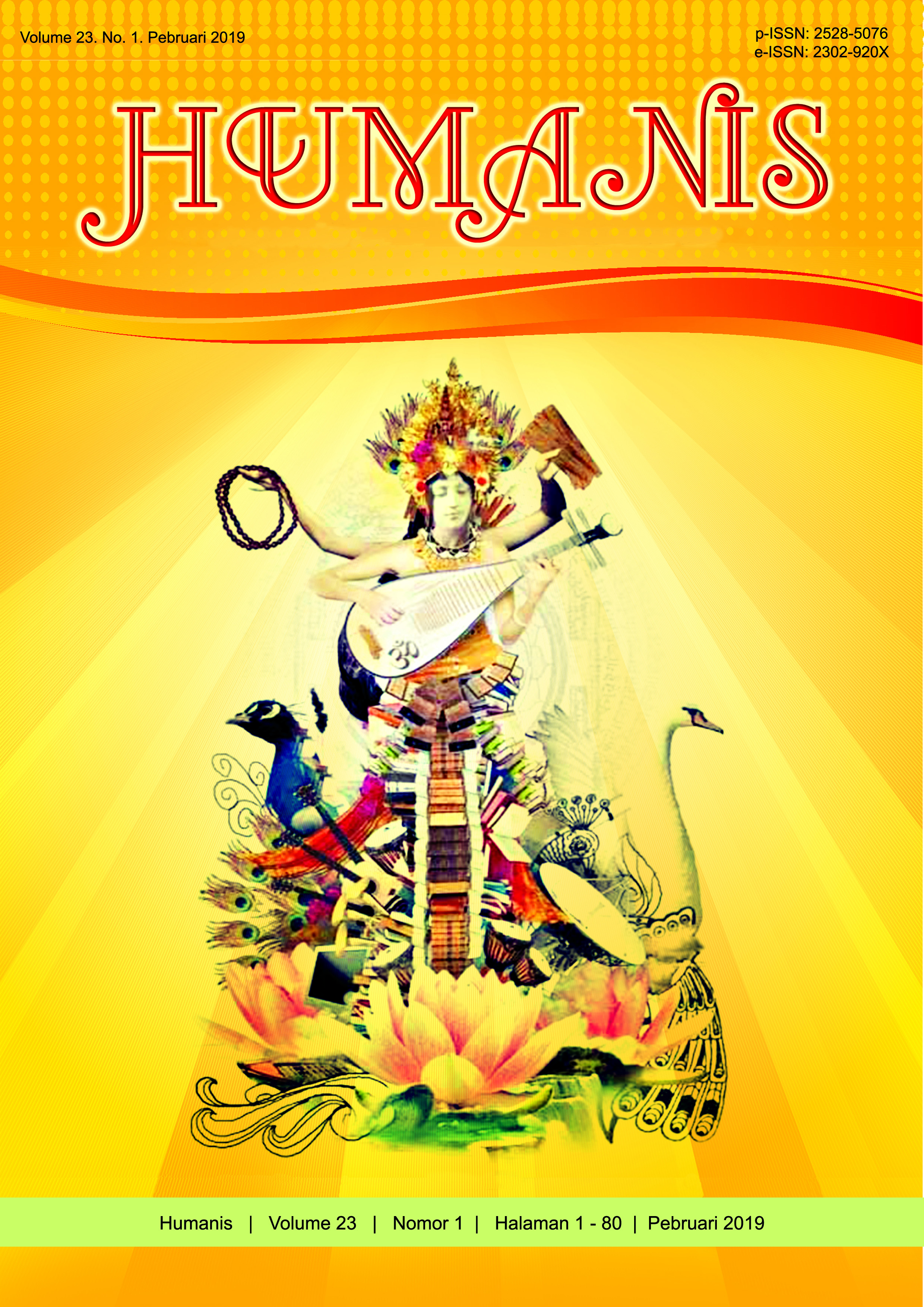Ritual Mungkah Wali Sebagai Kearifan Ekologi Bagi Masyrakat Desa Tambakan, Kecamatan Kubutambahan, Kabupaten Buleleng
Abstract
Tambakan people are able to maintain their ecological balance through local wisdom is reflected in the annual ritual behavior called Mungkah Wali. The purpose of this study is to know: (a) Why Tambakan people perform a ritual called Mungkah Wali , (b) How is the Mungkah Wali ritual process implemented and (c) What is the meaning of Mungkah Wali ritual for Tambakan society? This research uses ethnographic research method which is included in qualitative research with data collection technique through participant observation, interview, and literature study. This research using Functional Structural theory in reviewing structure and function of Mungkah Wali ritual to understand and analyze the research data, and uses Semiologi theory to study the myth contained in the ritual. Based on the analysis, this study found three factors behind the implementation of Mungkah Wali ritual that are (a) as the worship of God; (b) carrying out mythical rituals; (c) relate to the history of the establishment of Tambak Village. The function of the Mungkah Wali ritual is for offering to obtain the grace in the form of safety, welfare, and prosperity for Tambakan Village. The meaning of the Mungkah Wali ritual is: (a) having an unifying or solidarity function among the community; (b) having a preservation function for forest area in Tambakan Village; (c) has a function in maintaining water availability in Desa Tambakan; (d) has a function of preserving the cow population; (e) has an economic function for the community of Desa Tambakan


















